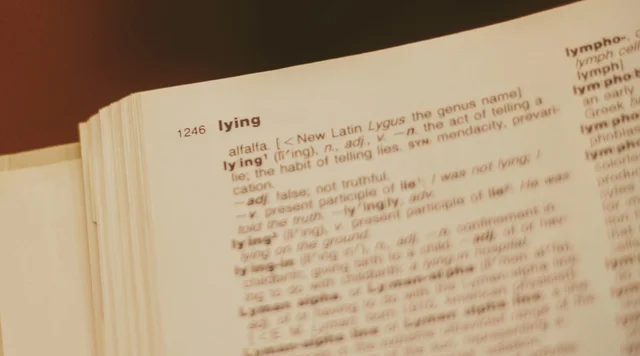
The District of Delaware's local rules are available on the court's website, but they don't tell the whole story—there are a number of critical rules and practices set forth in other documents that are not as obvious on the site.
These can really trip you up if you're not familiar with D. Del. practice.
This post is geared towards mainly towards out-of-town or in-house counsel. It covers the basics and then lays out where to find some of those other important rules if you have a case in the District of Delaware, particularly a patent case.
Here is where to start:
1. The District of Delaware Local Rules
The Court's website lists the current local rules (revised in 2016), and the previous version (2010). If you're doing some research and looking for older versions, here are the 2007 and 1995 revisions.
No, there are no District of Delaware Patent Local Rules
Contrary to what you may have heard, the District of Delaware has no patent local rules, and none of the Court's local rules are specific to patent actions (other than LR 3.2 regarding attaching a copy of an asserted patent to the complaint).
Over the years, D. Del. judges have stated that the Court prefers not to adopt patent local rules, in part to allow a greater degree of flexibility in individual cases.
2. The Court’s "Default Standard"
In 2011, the District of Delaware issued its current Default Standard for Discovery, Including Discovery of Electronically Stored Information (“ESI”). These days, practitioners typically just call it the "Default Standard."
In contrast to the previous versions, the current Default Standard actually sets default guidelines for two separate things: disclosures in patent cases and electronic discovery (ESI).
When does the Default Standard apply?
To one degree or another, it applies in every case. While the Court, to my knowledge, has never issued a global order applying the Default Standard universally, all of the judges either incorporate the Default Standard by reference in their form scheduling orders, or have applied it regardless.
All of the judges other than Judge Andrews and Judge Connolly explicitly reference the Default Standard in their form scheduling orders. Judges Andrews and Judge Connolly operate somewhat differently:
- Judge Andrews treats the Default Standard as an optional set of rules for patent disclosures, but makes no reference to the Default Standard's ESI provisions in his form order. Parties often apply them regardless, sometimes by stip. But I haven't seen an opinion or order from Judge Andrews stating that he will apply the Default Standard's ESI rules in all cases.
- Judge Connolly models his disclosure provisions in patent actions on the stricter Northern District of California patent rules instead of the Default Standard. As to ESI, even though his scheduling order does not explicitly incorporate the Default Standard's ESI provisions, he has nonetheless ordered a party to apply them. See iCeutica Pty Ltd. et al v. Novitium Pharma LLC, C.A. No. 18-599-CFC (D. Del. Feb. 13, 2019) (ordering defendant to produce ESI-related disclosures under ¶ 3 of the Default Standard).
If the parties disagree about whether or how the Default Standard applies—e.g., in a Judge Andrews or Judge Connolly case—it's best to resolve that at the scheduling order stage, as both parties' initial ¶ 3 ESI disclosures start just 30 days after the FRCP 16 scheduling conference. It can be awkward if one party serves their disclosures and the other takes the position that they are not required.
Do you need to file an ESI stipulation in the District of Delaware?
No. While ESI stipulations are common or even required in some other jurisdictions, that is not true in the District of Delaware. No ESI stip is required.
That said, parties do file ESI stipulations from time to time, including when they want to modify something set forth in the Default Standard.
Should the parties modify the Default Standard in a patent case?
It depends on the case. As far as the ESI provisions, in patent cases the parties often follow the basic structure but agree to change the particulars to suit the case. In small cases (e.g., some employment actions), it's not uncommon for the parties to informally agree to disregard the Default Standard entirely.
As far as the patent disclosure provisions, the Default Standard works well, although you should consider setting dates certain in the Scheduling Order for the various deadlines (several of the judges' form orders already require these). In the unmodified Default Standard, the deadlines for later patent case disclosures are measured from the date of service of earlier disclosures, which can lead to calendaring confusion and potentially missed deadlines when a party serves its disclosures early.
Any modifications to the patent disclosure provisions are best made in the scheduling order. Modifications to the ESI provisions may be made by stipulation. It's also not uncommon to see parties agree by e-mail to modify the ESI provisions without filing a stipulation.
3. The District of Delaware CM/ECF Procedures
The District of Delaware also has Administrative Procedures Governing Filing and Service by Electronic Means, typically referred to as the CM/ECF Procedures. These set some vital rules. For example:
- The rule stating that the deadline for the filing or service of almost all documents in D. Del. cases is 6:00pm ET. CM/ECF Procedures, ¶ (F). [NOTE: As of September 1, 2022, this deadline will become 5:00pm ET]
- The rules for the filing of sealed documents, including that redacted versions are due within 7 days. CM/ECF Procedures, ¶ (G). This rule is enforced by the clerk's office, which will put a notice on the docket if a party misses the deadline. The Court's Electronic Filing Tips provide further guidance on filing under seal.
4. The Judge's Websites & Form Scheduling Orders
Like most other districts, the Judge's individual web pages have vital information for practicing before each judge.
Most notable are the judges' form scheduling orders. Each judge has different preferences regarding things like markman briefing, discovery dispute procedures, and word limits.
Some of the judges' individual sites include other essential information for a patent case, such as Chief Judge Stark's patent procedures (setting different rules on how to file things like motions to amend or strike), or Judge Noreika's standing order regarding joint claim construction charts.
5. The Court's Website
The Court's website lists other rules and procedures, including:
- Rules for seeking redaction of a transcript, which can be somewhat confusing.
- Rules for what is and is not allowed in the courtrooms. Leave your beeper at home! Note that the judges also have individual rules about electronics use in the courtroom, some of which are strictly enforced.
- Rarely-used default rules for source code review; parties generally agree to other procedures because the defaults can be burdensome.
- The rule against filing mediation materials on the docket.
- Various other rules, policies, and standing orders, most of which have been incorporated into other rules described above, or which do not impact out-of-town counsel.
6. See also Local Counsel
There are many other less formal rules, practices, and norms in D. Del., particularly for patent cases, some of which are announced only at local events. Unlike some jurisdictions, local counsel in the District of Delaware tend to remain involved all the way through trial, in part because only local counsel can sign filings (and the Court takes that duty seriously).
As a result, there are lots of incredibly well-informed local counsel available. Don't underestimate the value of having someone at hand who has been through dozens of patent cases before your particular judge. Sometimes it's like we can predict the future!
If you enjoyed this post, consider subscribing to receive free e-mail updates about new posts.




